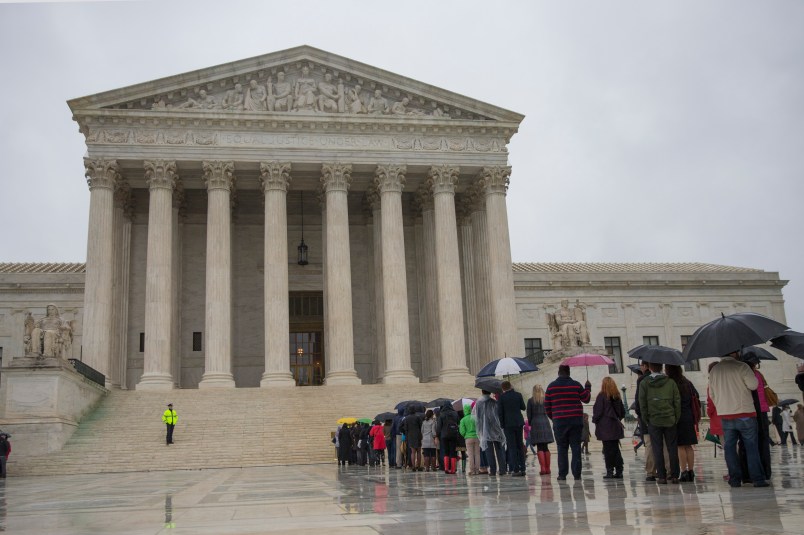WASHINGTON (AP) — The Supreme Court on Monday refused to get involved in the case of a reporter who has been ordered to testify at the trial of a former CIA officer accused of disclosing classified information.
The justices did not comment in rejecting an appeal from New York Times reporter James Risen, who detailed a botched CIA effort during the Clinton administration to thwart Iran’s nuclear ambitions. Risen’s reporting is at the center of criminal charges against former CIA officer Jeffrey Sterling. Federal prosecutors want to force Risen to testify about his sources at Sterling’s trial.
Risen argued that he has a right to protect his sources’ identity, either under the Constitution or rules governing criminal trials. The federal appeals court in Richmond, Virginia, rejected Risen’s bid to avoid being forced to testify.
The Associated Press and many other leading news organizations supported Risen’s appeal.
Congress is considering a proposed media shield law, similar to laws in place in most states, which would protect reporters and news media organizations from being required to reveal the identities of confidential sources. But it would not grant an absolute privilege to journalists.
The last time the Supreme Court weighed in on reporters and confidential sources was in 1972, when the courtsplit 5 to 4 to hold that that nothing in the First Amendment protects reporters from being called to testify before grand juries.
The appeals court relied on that ruling in Branzburg v. Hayes to side with prosecutors against Risen.
At the same time federal prosecutors have fought Risen in court, Attorney General Eric Holder has suggested that the government would not seek to put Risen in jail should he refuse to testify as ordered.
Copyright 2014 The Associated Press. All rights reserved. This material may not be published, broadcast, rewritten or redistributed.







The beatings will continue until you reveal your source, Mister Journalist.
Signed,
SCOTUS, Inc. dba The Supreme Corporate Court